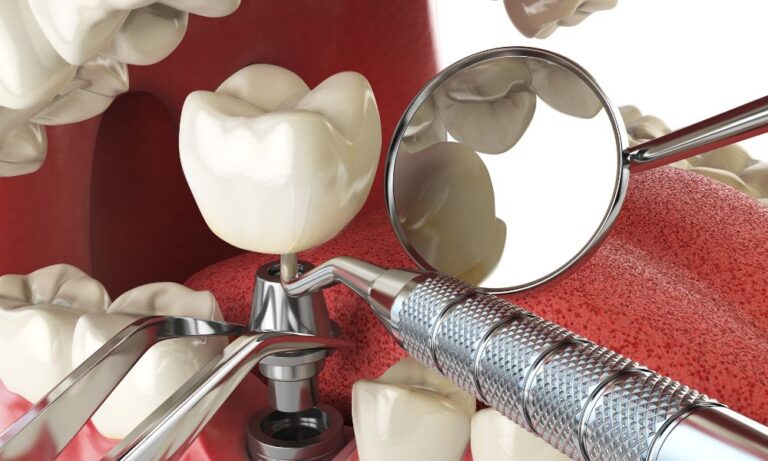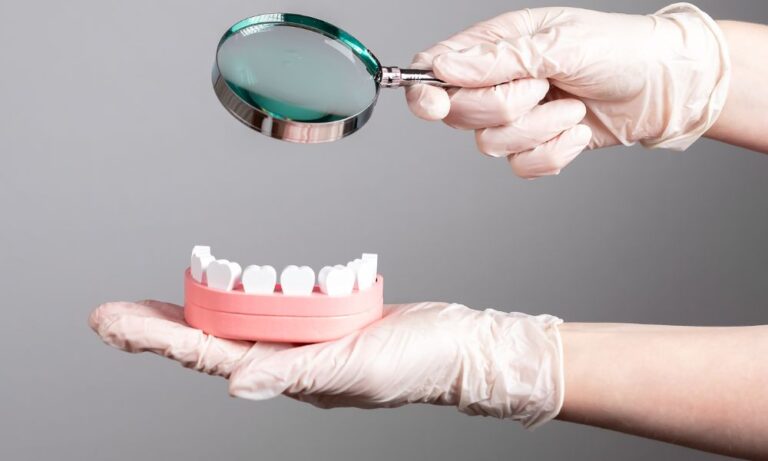Stress and anxiety have become widespread in today’s fast-paced world, impacting various aspects of our lives, including our physical and mental health. What many people may not realize, however, is that chronic stress can also take a toll on our oral well-being, with negative consequences on our gums, teeth, and overall dental health. Stress can lead to harmful habits and conditions such as teeth grinding, compromised immune system, and poor oral care routines, increasing the risk of gum disease and other dental issues.
In this comprehensive article, the expert team at Colorado Gum Care Northglenn sheds light on the often-overlooked connection between stress and oral health, analyzing the potential implications of stress on gum health and other dental concerns. We explore common stress-induced oral health problems, and emphasize the importance of addressing these issues through a holistic approach involving stress management techniques and proper dental care measures.
As you read on, you will acquire invaluable knowledge and practical tips for identifying stress-related dental problems and incorporating effective strategies for managing stress in your daily life, ultimately contributing to improved gum health and overall oral wellness.
1. How Stress Affects Oral Health and Gum Well-being
Chronic stress can contribute to various oral health issues, including gum disease, by affecting the body’s immune system and promoting harmful habits. Some ways in which stress can impact oral health include:
- Reduced Immune Function: Prolonged stress weakens the immune system, making it harder to fight off infections, including those that attack gum tissues. Inflammation caused by stress can further aggravate existing gum issues, increasing the risk of gum disease.
- Teeth Grinding (Bruxism): Under high stress levels, people may unconsciously clench or grind their teeth, leading to worn tooth enamel, jaw pain, and even gum recession if left untreated.
- Poor Oral Care Habits: Stress and anxiety can disrupt daily routines, including oral hygiene practices. Consequently, stressed individuals may neglect proper dental care, such as brushing, flossing, and dental checkups, increasing the risk of gum and oral health problems.
- Unhealthy Coping Mechanisms: People often turn to unhealthy habits like smoking, excessive alcohol consumption, or consuming sugary and acidic foods as a coping mechanism during times of stress. While temporarily comforting, these habits can wreak havoc on gum health and contribute to dental issues.
2. Common Stress-Induced Oral Health Concerns
The impact of stress on oral health can manifest in various ways, including:
- Gum Disease: Chronic stress impairs the immune system, leaving gums more susceptible to infections that cause gingivitis and periodontitis.
- Canker Sores: Stress may trigger the development of canker sores or small ulcers inside the mouth, which can cause discomfort and make maintaining oral hygiene painful.
- Dry Mouth: Anxiety and certain stress-related medications can lead to decreased saliva production, resulting in dry mouth. Without sufficient saliva, there is an increased risk of gum disease, tooth decay, and bad breath.
- Temporomandibular Joint Disorders (TMD): Bruxism or teeth grinding caused by stress can lead to TMD, which affects the jaw muscles and joints, causing pain, stiffness, and even gum issues.
3. Stress Management Techniques for Improving Oral Health
Implementing effective stress management techniques can make a significant impact on your oral well-being. Some methods to help manage stress and protect your gum health include:
- Regular Exercise: Engaging in physical activity has been proven to help reduce stress and contribute to overall wellness. Aim for at least 30 minutes of exercise, such as brisk walking, swimming, or yoga, most days of the week.
- Mindfulness Practices: Incorporate relaxation and mindfulness techniques, such as meditation, deep breathing exercises, or progressive muscle relaxation, into your daily routine to help alleviate stress and foster mental well-being.
- Balanced Diet: Eating a nutritious and well-balanced diet not only supports overall health but also helps combat stress by providing essential nutrients needed for optimal bodily function.
- Sleep: Adequate sleep is crucial for managing stress and maintaining overall health. Practice good sleep hygiene by establishing a regular sleep schedule and creating a peaceful, quiet sleeping environment.
- Time Management: Develop effective time management skills to help reduce stress. Organize your day through goal-setting and prioritizing tasks, and make sure to include breaks for relaxation or enjoyable activities.
4. Professional Dental Care and Stress-Related Oral Health Issues
Incorporating stress management techniques into your daily life is essential for maintaining healthy gums and oral well-being. However, addressing existing oral health issues and seeking professional dental guidance complement this holistic approach. Schedule regular dental appointments for check-ups, informed advice on stress-related dental problems, and appropriate treatments if necessary.
At Colorado Gum Care Northglenn, our experienced dental professionals can assess and address stress-induced oral health concerns, providing personalized treatment plans and offering guidance on adopting healthy lifestyle and dental care routines.
Embracing a Holistic, Proactive Approach to Oral Wellness
Understanding the connection between stress and gum health is essential for optimal oral well-being. By incorporating stress management techniques into your daily life, prioritizing proper dental care habits, and seeking professional dental guidance, you can effectively combat the harmful effects of stress on your gums and teeth.
Trust the Colorado Gum Care Northglenn expert team to support and guide you through the journey towards healthier gums and oral wellness. Schedule an appointment with our dentist in Westminster, CO, today and take the first step towards a radiant smile by prioritizing your dental health and embracing effective stress management practices.







